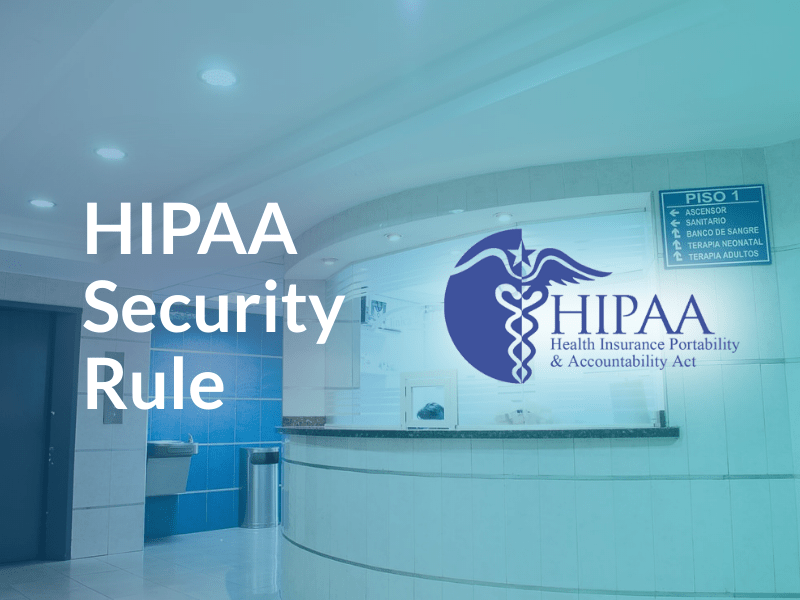Close
Close
The HIPAA Security Rule is a federal law establishing national standards for protecting electronically protected health information (ePHI) created, received, maintained, or transmitted by covered entities and their business associates. The HIPAA Security rule requires covered entities to implement appropriate security measures to protect ePHI. These measures include administrative, physical, and technical safeguards. The rule allows organizations to determine the specific security measures that will work best for them. Compliance with the Security Rule is essential to safeguard patient privacy and avoid potential penalties.
Here is a brief explanation of the HIPAA Security Rule:

The Health Insurance Portability and Accountability Act (HIPAA) Security Rule is a federal law that establishes national standards for protecting electronically protected health information (ePHI) that is created, received, maintained, or transmitted by covered entities and their business associates.
Here is a detailed explanation of the key aspects of the law:
Definition and Benefits: The HIPAA Security Rule sets forth detailed requirements for the protection of ePHI. The benefits of the HIPAA Security Rules include:
Protected Health Information (PHI): PHI is any information that identifies an individual and relates to their past, present, or future physical or mental health condition, healthcare provision to the individual, or payment for healthcare services. ePHI is any PHI that is created, received, maintained, or transmitted in electronic form.
Security Measures: Covered entities and their business associates must implement administrative, physical, and technical safeguards to protect ePHI from unauthorized access, use, or disclosure. Examples of security measures include:
Implementation: HIPAA applies to covered entities, which include healthcare providers, health plans, and healthcare clearinghouses, as well as their business associates. Covered entities and their business associates must implement measures to comply with the law, including providing notice to individuals about their data collection practices, responding to individual requests regarding their ePHI, and ensuring the security of ePHI.
Consequences of Non-Compliance: Failure to comply with HIPAA can result in various consequences, including investigations, potential enforcement actions, and reputational damage. The Office for Civil Rights (OCR) can issue findings and recommendations, enter into resolution agreements, and impose civil monetary penalties for violations.